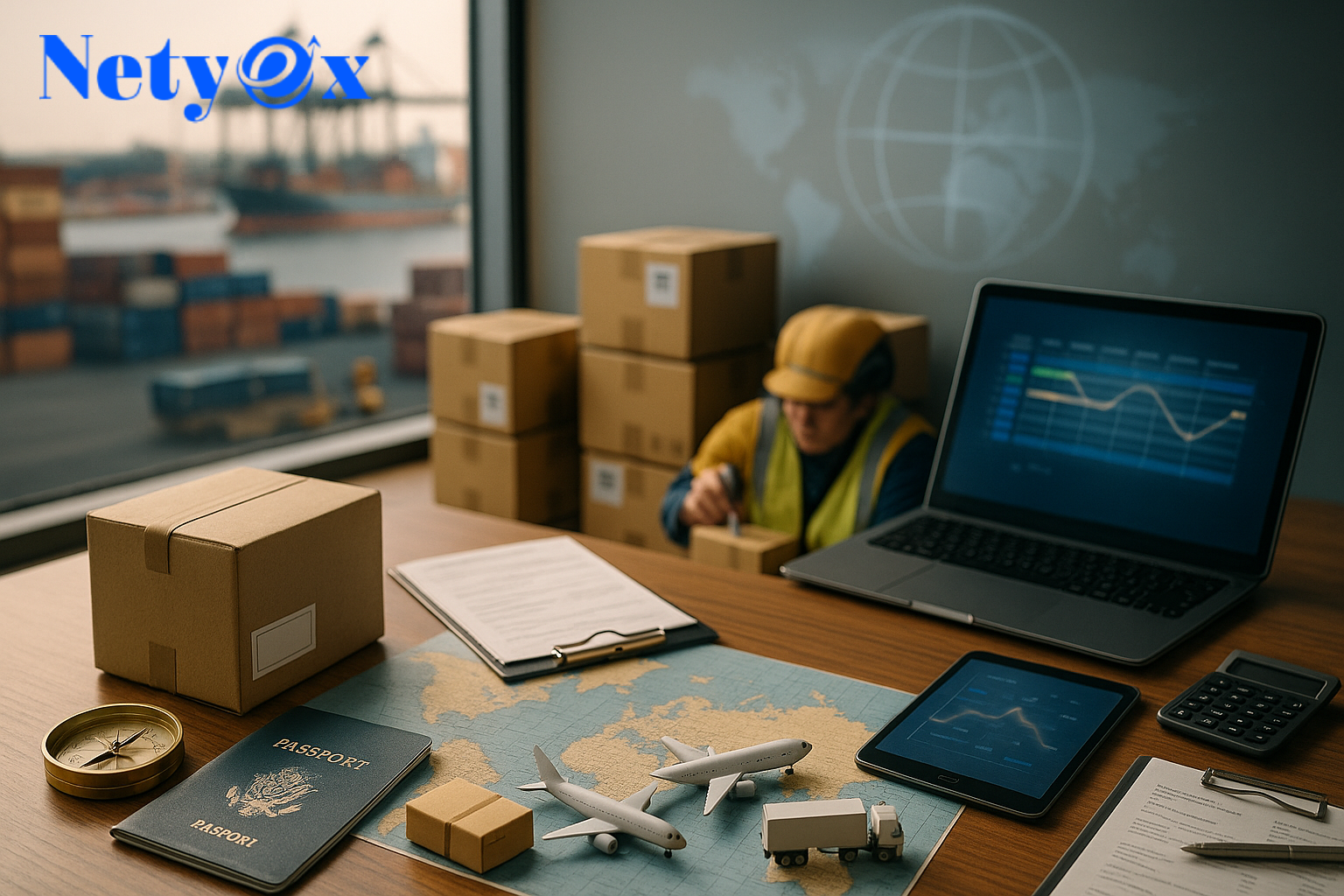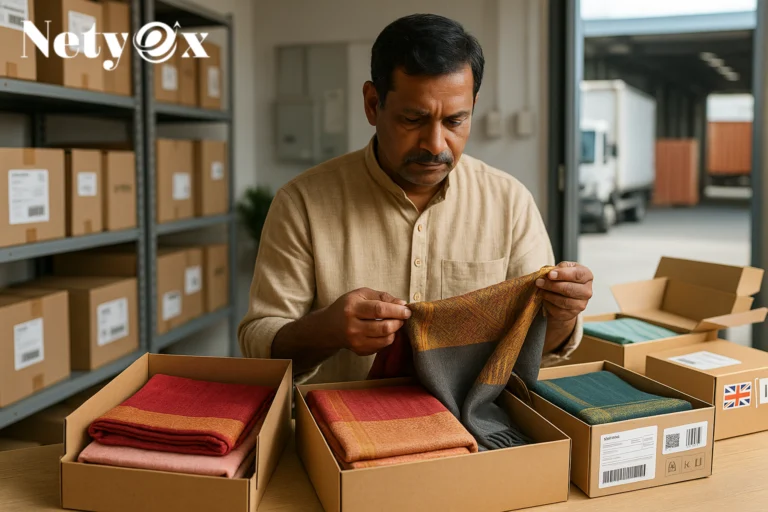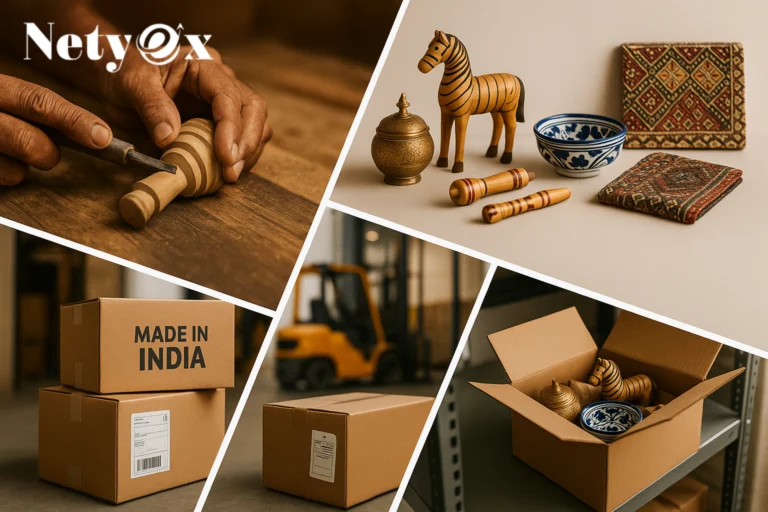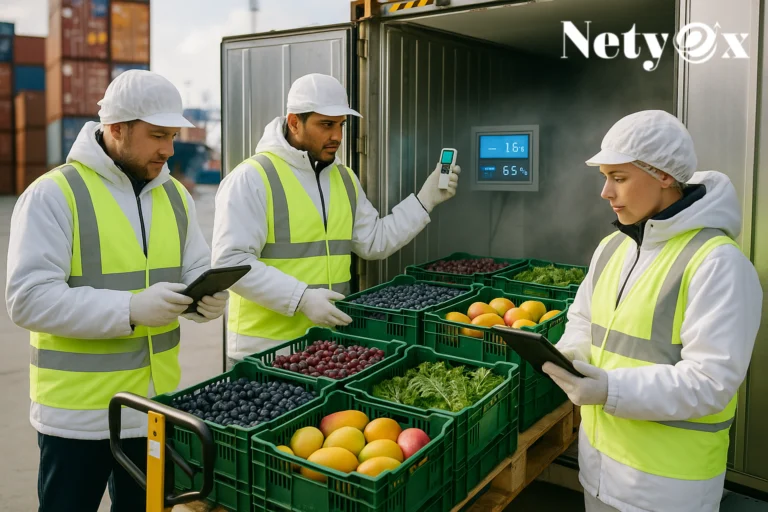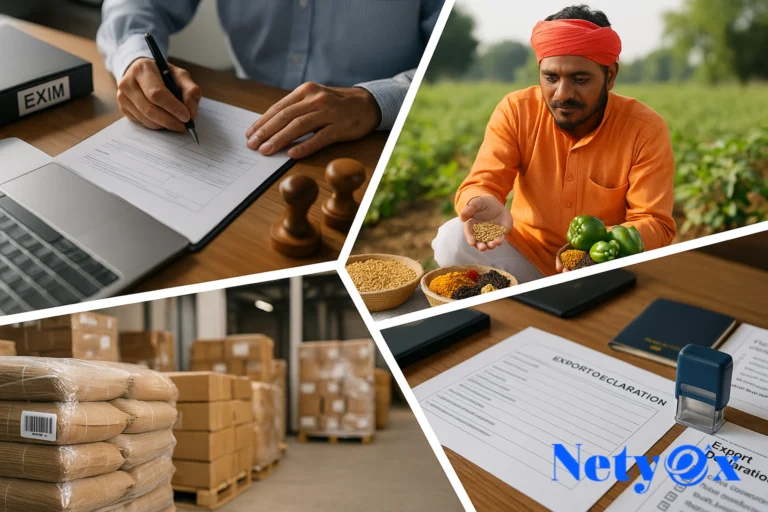Introduction to Freight Forwarders and Global Commerce
In the vast world of global trade, freight forwarders serve as the vital link between businesses and the international marketplace. Their primary role? To simplify the complex process of shipping goods across borders, ensuring that every shipment reaches its destination safely, efficiently, and on time.
As international trade continues to expand—driven by e-commerce growth, digital transformation, and global supply chain integration—freight forwarders have become indispensable players in ensuring the smooth flow of goods across continents. They act as architects of logistics, designing efficient transport routes, handling regulatory documentation, and coordinating between multiple carriers and customs authorities.
What Is a Freight Forwarder? Definition and Core Responsibilities
A freight forwarder is a logistics service provider responsible for organizing shipments on behalf of exporters or importers. Unlike carriers, who physically transport goods, freight forwarders act as intermediaries—planning and managing the logistics process from origin to destination.
Their responsibilities include:
- Arranging transportation (air, sea, road, or rail).
- Preparing export and import documentation.
- Managing customs clearance.
- Coordinating warehousing and cargo insurance.
- Negotiating freight rates with carriers.
Essentially, freight forwarders ensure that international shipping runs like a well-oiled machine, saving businesses time and money.
The Evolution of Freight Forwarding in International Trade
The freight forwarding industry has evolved significantly over the past century. Initially, freight forwarders were small agents handling shipments for local exporters. Today, they’ve transformed into global logistics giants offering end-to-end supply chain solutions.
The digital era has further accelerated this evolution. Modern freight forwarders now use advanced platforms to offer real-time shipment tracking, automated documentation, and data-driven insights that optimize trade operations.
Why Freight Forwarders Are Essential in Global Supply Chains
Freight forwarders bring efficiency and reliability to global logistics. Here’s how:
Streamlining International Logistics
Freight forwarders coordinate multiple moving parts—carriers, ports, customs offices, and warehouses—to ensure seamless transportation across borders. Their expertise minimizes delays and optimizes transit routes.
Reducing Shipping Costs and Transit Times
By consolidating shipments and negotiating bulk freight rates, freight forwarders help businesses cut transportation costs while ensuring faster deliveries.
Ensuring Compliance with International Regulations
Each country has unique trade regulations. Freight forwarders possess in-depth knowledge of these legal frameworks, ensuring compliance and preventing costly fines or delays.
Key Functions of Freight Forwarders in International Trade
Freight forwarders handle a wide array of tasks that keep global trade functioning smoothly:
Documentation and Customs Clearance
They prepare essential shipping documents—bills of lading, invoices, certificates of origin—and handle customs declarations to prevent clearance delays.
Cargo Consolidation and Deconsolidation
Combining smaller shipments into one larger load reduces costs and improves efficiency. Upon arrival, the forwarder deconsolidates goods for delivery to final destinations.
Freight Rate Negotiation and Cost Management
Forwarders leverage their networks and shipping volumes to secure competitive freight rates, offering cost savings for clients.
Risk Management and Cargo Insurance
They assess potential risks and arrange insurance coverage to protect shipments against loss or damage during transit.
Coordination of Multimodal Transport
Freight forwarders integrate multiple transport modes—air, sea, rail, and road—to ensure optimal routing and cost efficiency.
The Impact of Digitalization on Freight Forwarding
In recent years, digitalization has revolutionized the logistics and supply chain landscape, and freight forwarding has been at the forefront of this transformation. The integration of digital tools has drastically improved transparency, speed, and efficiency in international trade operations.
The Rise of Digital Freight Forwarders
Digital freight forwarders—such as Flexport, Freightos, and Kuehne+Nagel’s digital platforms—use technology to simplify the traditional shipping process. These platforms allow clients to book shipments, manage documentation, and track cargo in real-time through a centralized digital interface.
With automation reducing manual errors and delays, digital freight forwarders have become game-changers for small and large exporters alike.
Use of AI and Blockchain in Global Shipping
Artificial Intelligence (AI) now predicts transit delays, optimizes route planning, and manages inventory more effectively. Meanwhile, blockchain technology provides secure and transparent documentation, preventing fraud and enhancing trust between trading partners.
For instance, smart contracts can automatically trigger payments once goods reach a destination, streamlining financial transactions in international trade.
Benefits of Automation in Logistics Operations
Automation enhances productivity by reducing paperwork and manual intervention. Freight forwarders leveraging automated systems can process customs clearance faster, issue digital bills of lading, and provide instant status updates to clients. The result? Greater efficiency, lower costs, and improved customer satisfaction.
Common Challenges Faced by Freight Forwarders
While the role of freight forwarders in international trade is crucial, the industry also faces several complex challenges that test its adaptability and resilience.
Managing Supply Chain Disruptions
Events such as the COVID-19 pandemic, geopolitical tensions, and port strikes have highlighted the vulnerability of global supply chains. Freight forwarders must remain agile, creating contingency plans and alternative routes to minimize disruptions.
Dealing with Regulatory Changes and Trade Barriers
Customs laws, tariffs, and trade agreements vary by country and change frequently. Freight forwarders need to stay updated on these regulations to ensure compliance and avoid penalties.
Addressing Sustainability and Green Logistics Demands
As climate change becomes a pressing issue, clients increasingly demand eco-friendly logistics solutions. Freight forwarders are now adopting green initiatives like carbon offsetting, route optimization, and the use of sustainable packaging to reduce their environmental footprint.
Choosing the Right Freight Forwarder for Your Business
Selecting the right freight forwarding partner can significantly influence your international shipping success. Here’s what to consider:
Factors to Consider When Selecting a Freight Forwarding Partner
- Experience and Expertise: Choose a forwarder with proven experience in your industry and trade routes.
- Global Network: Ensure they have strong connections with carriers, customs agents, and warehouses worldwide.
- Technology Integration: Opt for forwarders offering real-time tracking and digital document management.
- Compliance Knowledge: A reliable forwarder must be well-versed in international regulations and documentation requirements.
- Customer Support: Efficient communication and problem-solving capabilities are key.
Questions to Ask Before Signing a Contract
- What shipping routes and carriers do you specialize in?
- How do you handle customs and regulatory compliance?
- What insurance coverage do you provide?
- Can I access shipment tracking in real-time?
- What are your contingency plans for delays or disruptions?
Tips for Building Long-Term Partnerships
Developing a strong, long-term relationship with your freight forwarder fosters better collaboration and efficiency. Communicate regularly, provide accurate forecasts, and evaluate performance metrics periodically to ensure consistent service quality.
The Difference Between Freight Forwarders, Customs Brokers, and NVOCCs
Understanding the distinctions between various logistics professionals helps businesses choose the right partner.
Freight Forwarder vs. Customs Broker
A freight forwarder manages the overall logistics process, while a customs broker specializes in clearing goods through customs. Often, freight forwarders employ or partner with customs brokers to provide complete end-to-end services.
Freight Forwarder vs. NVOCC (Non-Vessel Operating Common Carrier)
While both manage shipments, an NVOCC issues its own bill of lading and acts as a carrier without operating ships. Freight forwarders, on the other hand, act as intermediaries between shippers and carriers, arranging but not directly providing transport.
How Freight Forwarders Facilitate Global Trade Efficiency
Freight forwarders play a pivotal role in connecting markets, fostering economic growth, and promoting international collaboration.
Enhancing Trade Connectivity Between Markets
They enable exporters and importers to access new markets efficiently by managing logistics networks across continents. This connectivity boosts trade volumes and drives economic development.
Leveraging Technology for Real-Time Shipment Tracking
Modern forwarders use Internet of Things (IoT) devices and advanced tracking systems to provide visibility at every stage of transportation—enhancing trust and decision-making.
Partnering with Carriers and Customs Brokers
Collaboration is key to success. Freight forwarders work closely with carriers, port authorities, and customs officials to ensure timely and compliant shipments, reducing bottlenecks and delays.
The Future of Freight Forwarding in International Trade
The next decade will reshape global logistics, with technology and sustainability leading the charge.
Emerging Technologies and Trends Shaping the Industry
Expect continued innovation through predictive analytics, cloud-based logistics platforms, and artificial intelligence to improve efficiency and customer experience.
Sustainability, Automation, and Smart Logistics
Freight forwarders will increasingly adopt electric vehicles, automated ports, and AI-driven route planning to reduce emissions and optimize operations.
The Evolving Role of Freight Forwarders Post-2025
By 2030, freight forwarders will act not only as logistics providers but as strategic trade partners—offering consulting services, sustainability tracking, and integrated digital ecosystems for global commerce.
FAQs About Freight Forwarders and International Trade
1. What is the main role of a freight forwarder in international trade?
A freight forwarder manages the transportation and logistics process of shipping goods across borders, handling documentation, customs, and coordination between carriers.
2. How do freight forwarders differ from shipping lines?
Shipping lines own and operate vessels, while freight forwarders coordinate shipments by working with multiple carriers and transport modes.
3. Can small businesses benefit from freight forwarding services?
Absolutely. Freight forwarders help small exporters manage complex logistics, lower shipping costs, and access global markets without needing in-house expertise.
4. What technologies are transforming freight forwarding today?
AI, blockchain, automation, and digital platforms are streamlining operations, improving transparency, and reducing human error in logistics.
5. How do freight forwarders ensure compliance with trade regulations?
They prepare and verify export-import documents, monitor changing regulations, and work closely with customs brokers to prevent compliance issues.
6. What are the biggest challenges freight forwarders face today?
Major challenges include fluctuating shipping costs, geopolitical instability, environmental regulations, and increasing customer demands for transparency and sustainability.
Conclusion: Strengthening Global Trade Through Freight Forwarding
In an interconnected global economy, freight forwarders remain the backbone of international trade. Their ability to manage logistics, ensure compliance, and adapt to evolving technologies makes them indispensable for global commerce.
From digital transformation to sustainability initiatives, freight forwarders are shaping the future of trade—making international business faster, smarter, and more sustainable than ever before.



